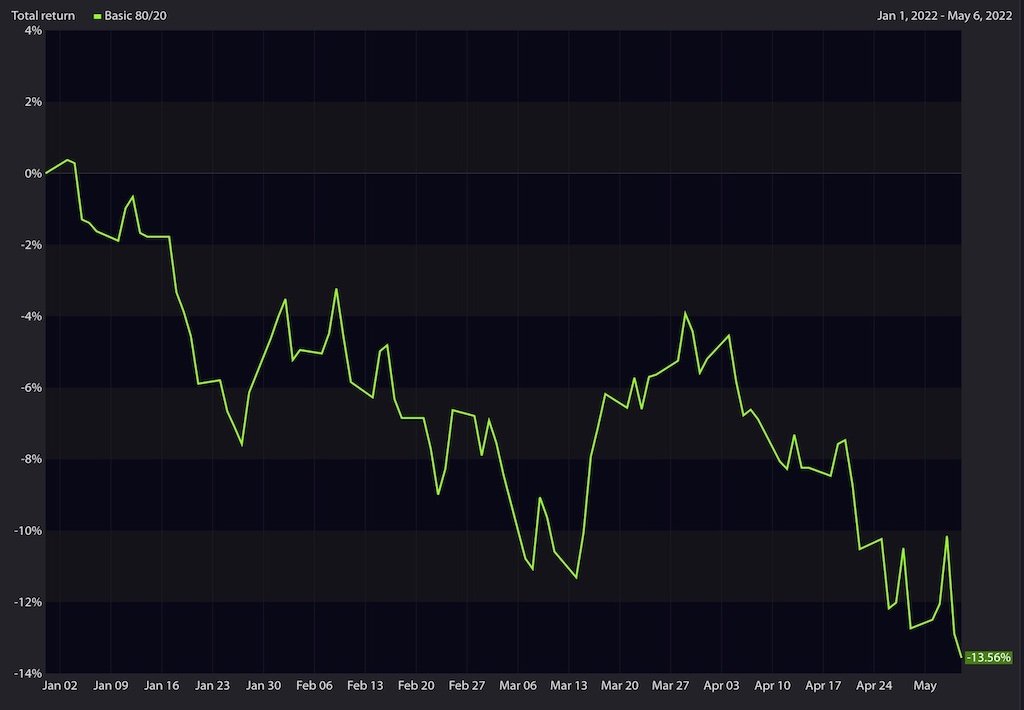Given the recent declines in the financial markets, I think it's a good time for a reminder: In the short run, investments don't always go up.
No one likes seeing losses in their portfolio, but it's unavoidable. Fortunately, we can zoom out and the long-term picture is an upward trend.
To demonstrate this, I built a basic portfolio, 80% stocks and 20% bonds, using three investments:
60% Vanguard Total Stock Market Index ETF (VTI)
20% Vanguard Total International Stock Market Index ETF (VXUS)
20% Vanguard Total Bond Market Index ETF (BND)
Below, you'll find two charts. The first chart shows performance of the 80/20 portfolio from January 1st, 2022 through May 6, 2022. The second chart shows performance of the 80/20 portfolio from May 7, 1997 through May 6, 2022 (25 years!) and includes five events that had a negative impact on the financial markets.
For investors, living through those events was painful. However, the markets bounced back, creating the positive upward trend that's clearly visible.
Year-to-date return of a portfolio invested in 80% stocks and 20% bonds.
25-year return of a portfolio invested in 80% stocks and 20% bonds.
What Should Investors Do?
In my opinion, here are the best things you can do when dealing with declines in the financial markets:
Do nothing. Stay invested and stick to your financial plan.
Continue to invest. Everyone likes buying things when they're on sale. Here's your opportunity!
Stop checking the balance of your portfolio. Remember, the long-term trend is upward, but the day-to-day, week-to-week, and month-to-month performance of your investments will be all over the place.
Turn off the financial "news". Financial media, such as CNBC, loves when markets are volatile. Please ignore their "experts".
Consider tax-loss harvesting. This is a somewhat advanced strategy that involves selling a taxable investment at a loss to offset realized capital gains or up to $3,000/year of earned income. Talk to your financial planner about this option.





